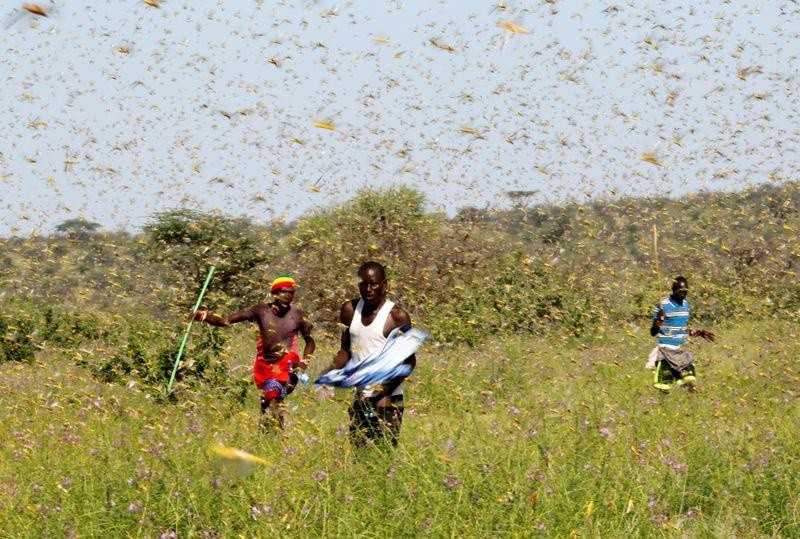
After the devastation that they have left in the crops and pasture of East Africa, the locust swarms continue to ravage farmlands as they spread to South Sudan, according to the United Nations food agency.
UN has previously warned that if the outbreak is not immediately controlled, it will bring about a food crisis, which is now imminent in South Sudan since millions are already facing hunger as the grapple to arise from a civil war.
In his visit to Africa, the United States Secretary of State Mike Pompeo pledged $8million to aid in the fight against the pest infestation and looming hunger. Pompeo pledged the amount after his talks with Ethiopia Prime Minister Abiy Ahmed, whose country has also been hit by the infestations along with Somalia, Uganda and Kenya.
For the past quarter of a century, this is the worst infestation of locusts that Somalia and Ethiopia have seen, while in Kenya they have never witnessed a locust swarm this bad since 70 years ago.
The region's efforts to fight off the invasion of the pests have not been effective so far since they lack resources to effective ways of fighting off the swarms like aerial spraying of pesticides. This sparks fear that the locusts have now reached hundreds of billions in number and will multiply further.
According to the Food and Agriculture (FAO) there are about 2,000 adult insects that have entered South Sudan through Uganda into Magwi.
Per BBC, FAO South Sudan Representative Meshack Malo described the pests as deep yellow which he said means that they would mostly be looking for areas to lay their eggs and multiply.
Citizens are also being trained to spray pesticides according to Agriculture Minister Onyoti Adigo Nyikuac. He further added that they still need chemicals and sprayers; vehicles which are needed to move while spraying; and if it becomes worse, air crafts will be necessary.
Amid their struggle to emerge from the civil war, 60% of South Sudan's population is already facing hunger and food insecurity. Hence, Save the Children, a rights group warned that if the locusts continue to devour crops and destroy harvests it may result to a drop of nutrition levels in children. The charity group also stated that even without the locust infestation, there are already 1.3 million children who are expected to be malnourished below the age of five.
The FAO also warned that if left uncontrolled, the pests could grow 500 times their number in June in the pace that they are breeding. These insects also eat their own body weight in food everyday.
Last week, the UN body called to the international community that nearly $76million is needed to fund the spraying of affected areas with pesticides.
In response to the infestation, the Ethopian government has called for immediate action to deal with the locust problem affecting nine of the country's states while Somalia has declared a national emergency.
The locust swarms started in Africa three months ago when they entered from Yemen.
Related article: East Africa Experiences Biggest Locust Swarm in 70 Years








